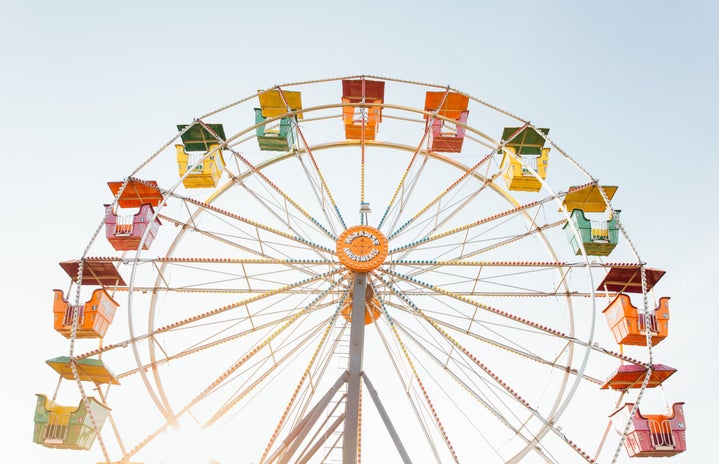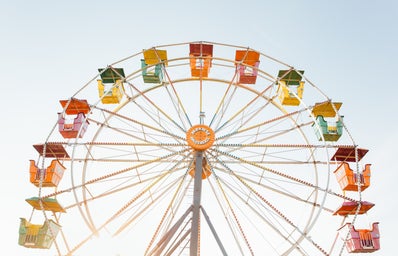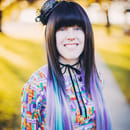For the last two years I was in college, I lived in an apartment with my best friend who uses a wheelchair. Our weekly conversations often centered on the topic of ableism—discrimination in favor of able-bodied people—a subject that I’d never had a name for before I met her. It became starkly present in my life to the point where I could no longer ignore it: unshoveled university sidewalks, classrooms without elevator access, homecoming dances labeled ‘accessible’ that had stairs at the entryway.
And now, Kylie Jenner and Interview magazine.
Kylie’s recent Interview photo shoot has everyone in an uproar, especially disability activists and wheelchair users, and rightfully so. Interview stands by their decision to photograph her this way, and many devil’s advocates have played the “Isn’t this representation for wheelchairs in the fashion industry?” card.
The truth is: It’s not representation. Plain and simple. I have nothing against Kylie as a model, and she clearly has a talent for gaining a loyal fanbase, as evidenced by her being chosen for TIME’s 100 Most Influential Teens. The problem I have is with the industry’s and society’s defense of placing her in a wheelchair for this shoot.
Disability activists rushed to social media to fuel their outrage. As a frequent reader of #TheAbleistScript hashtag on Twitter, I was eager to see wheelchair users speaking out about the issue.
As someone in a wheelchair @KylieJenner @InterviewMag, this is offensive. My chair is not haute couture. pic.twitter.com/y3sBaiJzIH
— Jessica Jewett Jones (@JJ9828) December 1, 2015
The ridiculous @KylieJenner tries to profit off the misconception “wheelchair bound” means we’re helpless…my wheelchair is my FREEDOM
— Dominick Evans (@dominickevans) December 1, 2015
I don’t use a wheelchair. I am not denied basic access to buildings and events because of a disability. I can’t pretend to know what that lived experience is like, but I do know one thing: I’m an ally to people with disabilities. Nothing hurts secondhand more than thinking about what my friends and family members who aren’t able-bodied are going through every time they have to reconsider attending an event because of its accessibility.
People who use wheelchairs need true representation in the media. Much like people of color and LGBTQ+ people, they need to be able to see themselves in every corner of society. We need more television shows like Push Girls, and we need them to become mainstream. We need actors and actresses who actually use wheelchairs to play roles, rather than able-bodied actors using a prop. We need more celebrated and well-known models, musicians, artists, comedians and celebrities who use wheelchairs, and who are allowed to frankly discuss the reality that lies behind ableism.
Interview claims that it wanted to place Kylie “in a variety of positions of power and control,” but did the editors and photographs take a moment to think about the implications? What message does this send, that using a wheelchair for mobility is a form of power or control? Those with disabilities are already oppressed, and don’t need any more subtle hints that their lives are not their own.
What on earth was @KylieJenner thinking? My wheelchair is my reality, not your fashion statement. https://t.co/MIrnvRsKXM
— Emily Ladau (@emily_ladau) December 2, 2015
@KylieJenner wow being in a wheelchair is so fun and fashionable! #Ableism is the ultimate fashion statement! pic.twitter.com/lOScQnODhy
— Ophelia Brown (@bandaidknees) December 1, 2015
Others who defended the use of the wheelchair for this shoot cited Kylie’s interview with the magazine, in which she uses the wheelchair as an analogy for how her fame limits her. There’s that word again—”limits.”
We don’t need to talk about whether or not Kylie’s fame limits her; it must, in some ways. What we should be talking about is how wheelchair users are limited every day—not by their chairs, but by the culture we live in that doesn’t make space for them. They face barriers such as people unnecessarily using handicapped parking spaces and bathrooms. Even areas that are designed with disabilities in mind are crowded out by able-bodied people who want to get into the mall more quickly by borrowing their grandmother’s handicapped placard. Wheelchair users don’t have limits just because they use mobility devices, and able-bodied people shouldn’t be attaching that label to them. They have limits because we don’t make space for them to exist and engage, in ways as simple as not building a ramp or an elevator in a building, or as complex as using a prop wheelchair to attract a media buzz.
If there’s anything I hope to come out of this photo shoot, it’s this: I want people to be outraged. I want able-bodied people to learn about the word ableism and what it means. I want them to stand fiercely against it, and to defend inclusion until we’re all represented. Nobody’s daily struggles should be appropriated for a costume or a fashion statement. This is everyone’s fight, and in order to win, we need to stand together.


